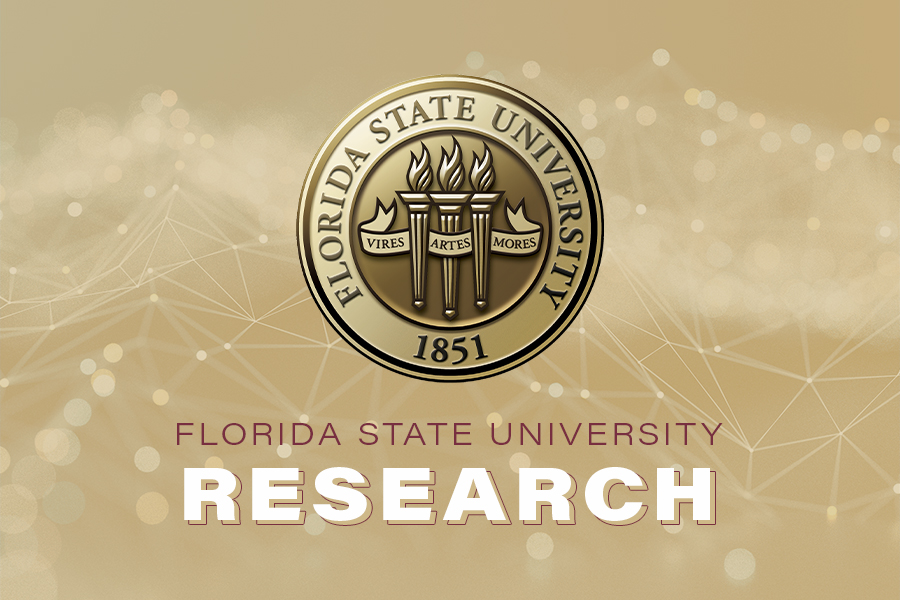
A process for cheaper fuel cells, improved genomic profiling and an environmentally friendly way to increase water retention for plants are among the projects that Florida State University is helping researchers move forward into potential commercial ventures.
FSU’s Office of the Vice President for Research awarded more than $161,000 to four faculty members to move projects with commercial potential to the next phase as part of the Fall 2021 GAP Commercialization Investment Program. Since GAP began in 2006, Florida State has awarded $3.5 million in funding and signed 20 license agreements for technologies developed through the program.
“Florida State researchers are tackling all manner of difficult problems,” said Interim Vice President for Research Laurel Fulkerson. “This program helps them find new avenues for work with very practical applications and expands the reach of their research by getting them closer to the point of forming spinoff companies or marketing fully commercializable ideas.”
The funded projects are:
A more environmentally friendly way to produce a plant-growing medium for urban farming: Plant starter plugs are a popular growing medium for hydroponics and related agricultural techniques, but they require appropriate moisture control to work. A material called cellulose nanocrystals, which are derived from plant cell walls and vegetable fibers, increases water retention in plant starter plugs, improving their effectiveness. Gang Chen, a professor of civil and environmental engineering at the FAMU-FSU College of Engineering, has developed a way to extract cellulose that does not use acid hydrolysis, which produces polluting waste liquid.
Chen is a repeat GAP participant. A previous GAP-funded project to develop a biochar-hydrogel soil additive that reduces the need for fertilizers, helps conserve water and improves crop yields has been licensed for commercial production by the South Africa-based company Ecolyfe Africa.
Fast and inexpensive genomic profiling: Evaluating variations in genomes is crucial for all sorts of endeavors — curing disease, improving agriculture, establishing paternity and more. Because many genomes of interest are large, scientists rely on genomic samples to get the information they need. Current applications use a variety of methods to sample and optimize genomes. An approach that is flexible enough to work in a variety of settings would be transformative.
Using previous GAP funding, Professor of Scientific Computing Alan Lemmon and Associate Professor of Biological Science Emily Lemmon developed a method that decreased the cost of genomic sampling. They’re now planning more work that would continue lowering that cost and would expand potential applications of their work.
A method to test magnetic materials for clean energy: The world runs on energy. Finding sustainable ways to generate energy is a growing concern. High-temperature superconductors, which carry electric current with very little energy loss, are a crucial tool for future electrification technologies. Those technologies include the potential development of nuclear fusion as well as already existing tools, such as neodymium magnets used in electric motors and wind power generators. Jan Jaroszynski, a research faculty member at the National High Magnetic Field Laboratory, has patented an instrument that measures the properties of rare earth elements that are part of these next-generation tools. The next phase of work will be to develop a prototype that can quickly and economically test large samples of materials that could be used in electricity-producing technologies.
Sustainable and stable water-splitting electrocatalysts for improved fuel cells: Hydrogen fuel cells represent an opportunity for next-generation electricity production. Water electrolysis is a sustainable method for using this technology, but the cost is prohibitively high because it uses expensive platinum group metals (PGMs). Michael Shatruk, a professor in the Department of Chemistry and Biochemistry, and other researchers have developed stable electrocatalysts for water electrolysis that don’t require PGMs, making them an inexpensive alternative. His project will scale up the synthesis of these electrocatalysts for commercial testing.
For more information about the GAP competition, visit the FSU Office of Commercialization.




